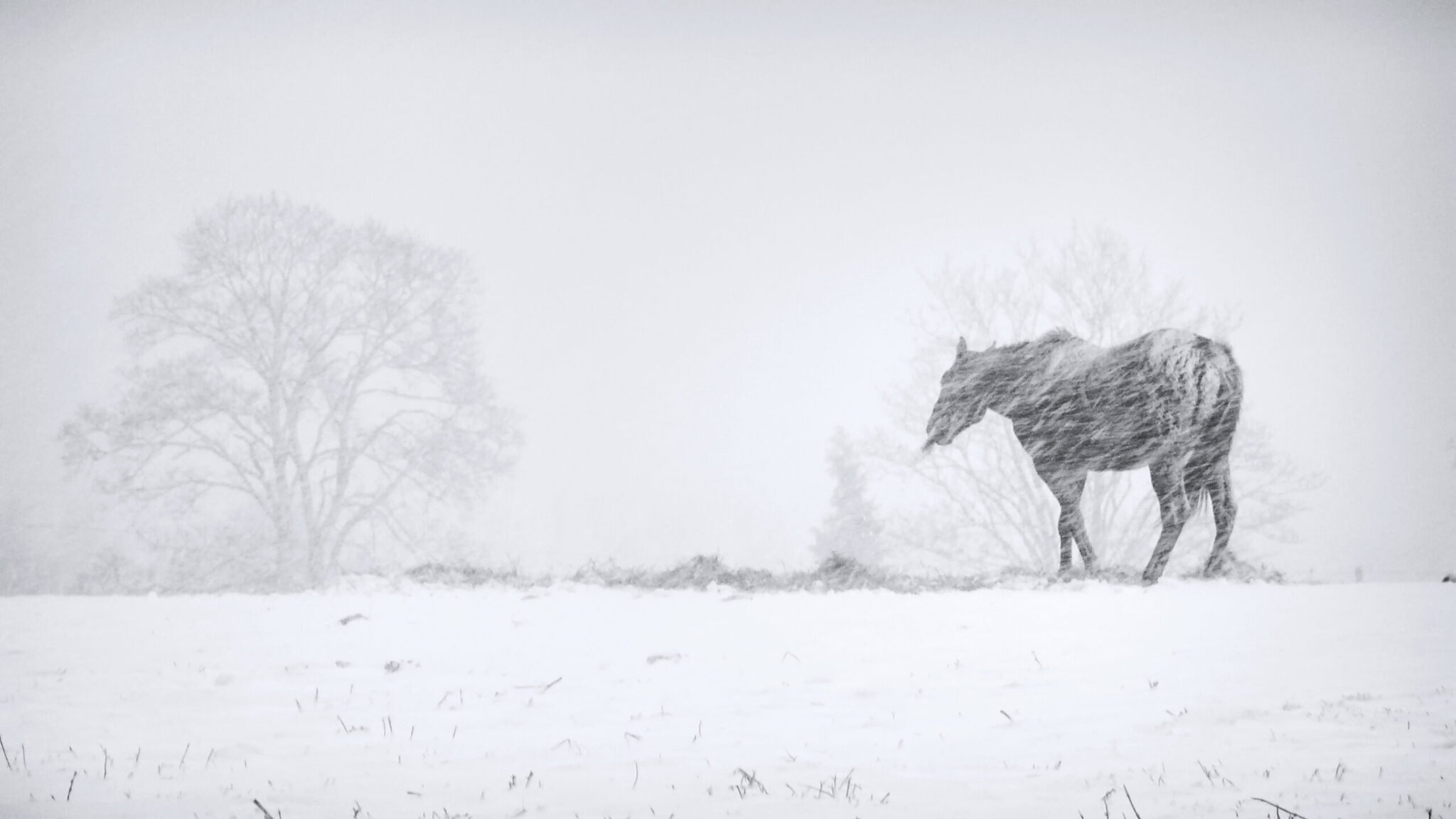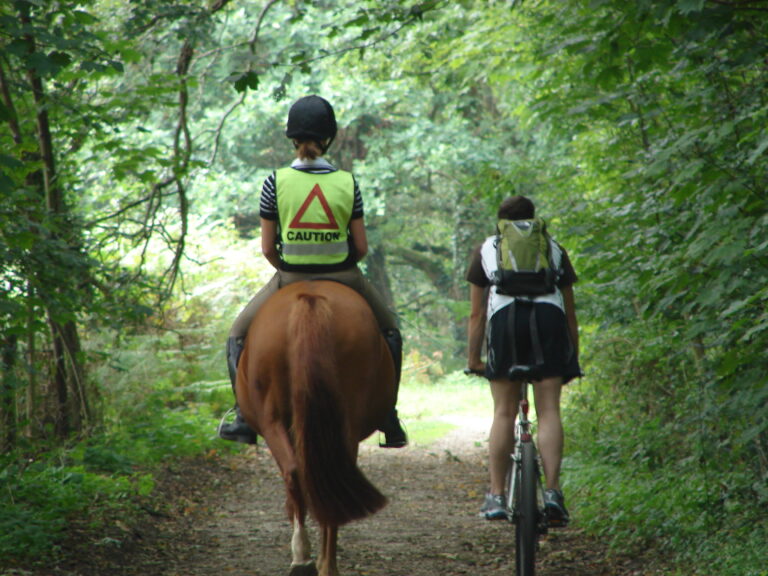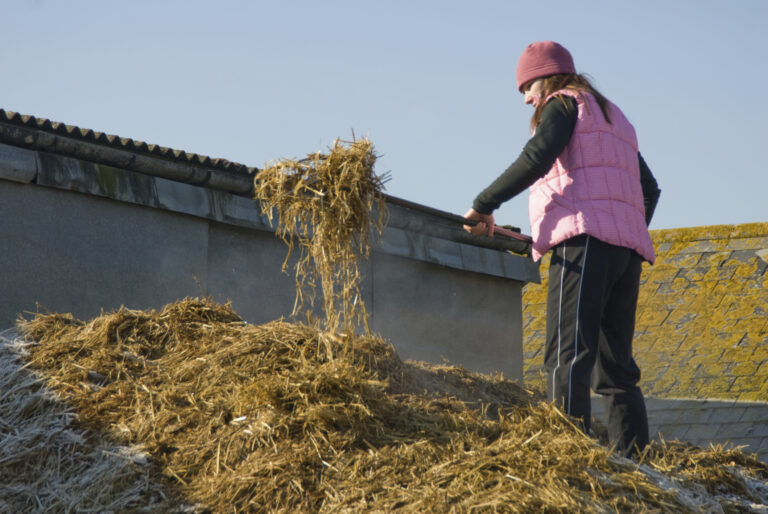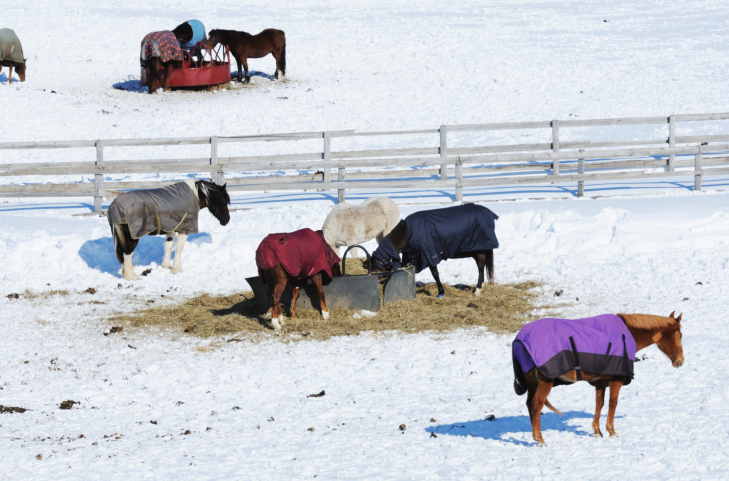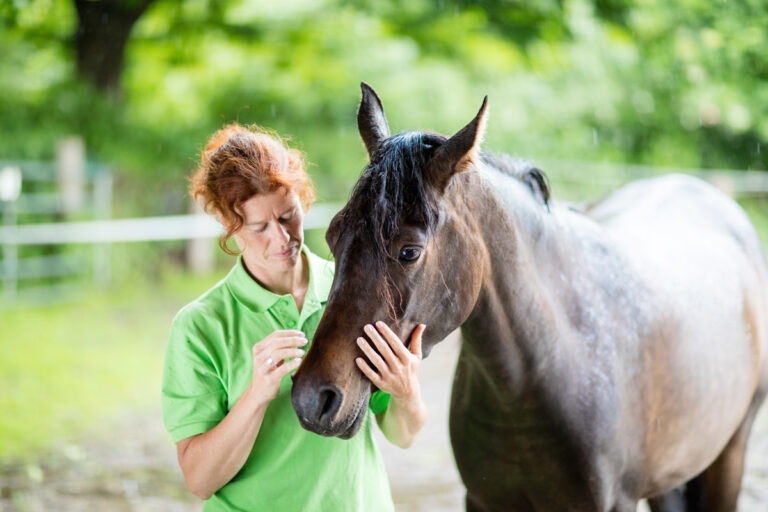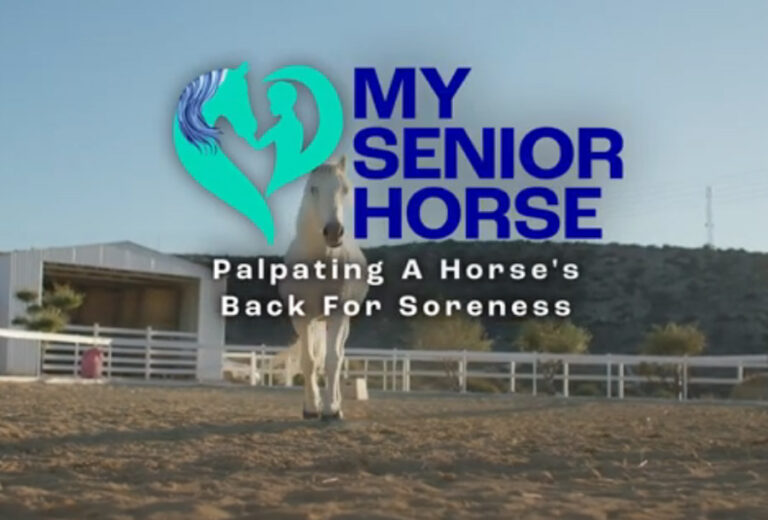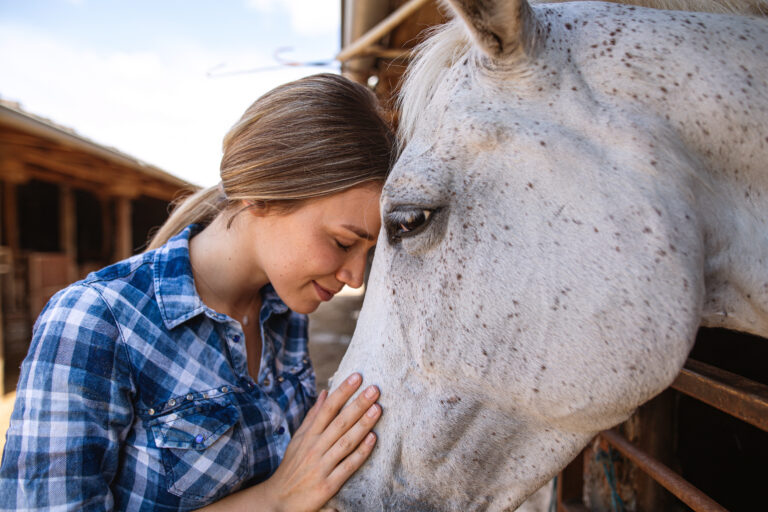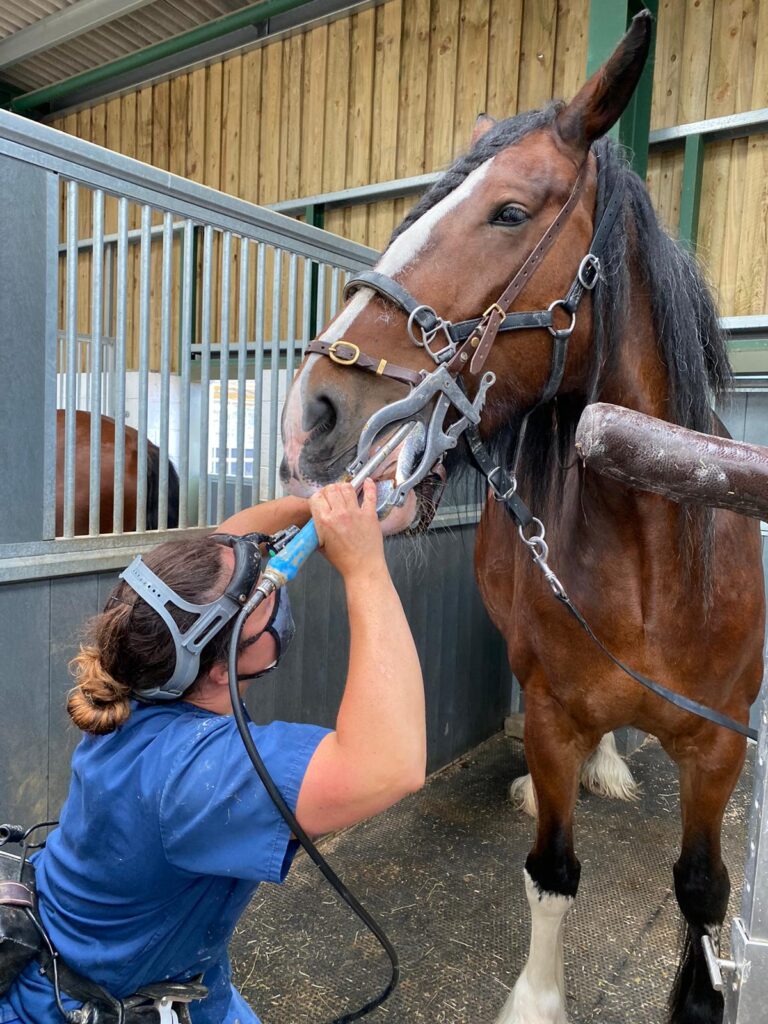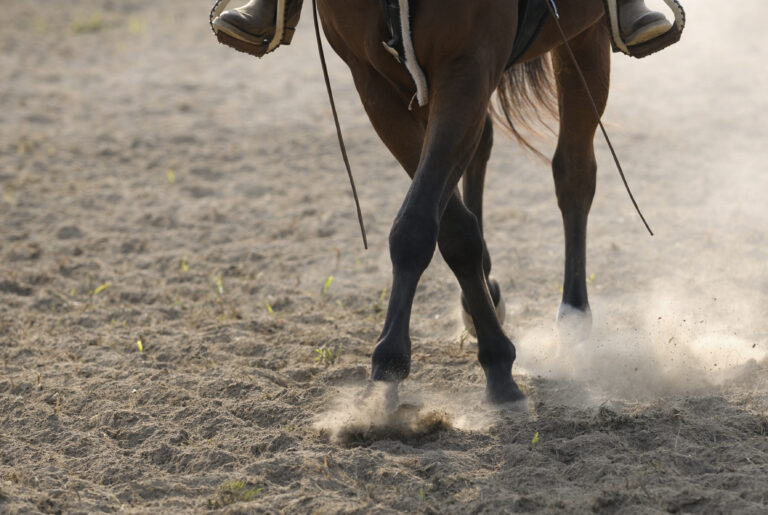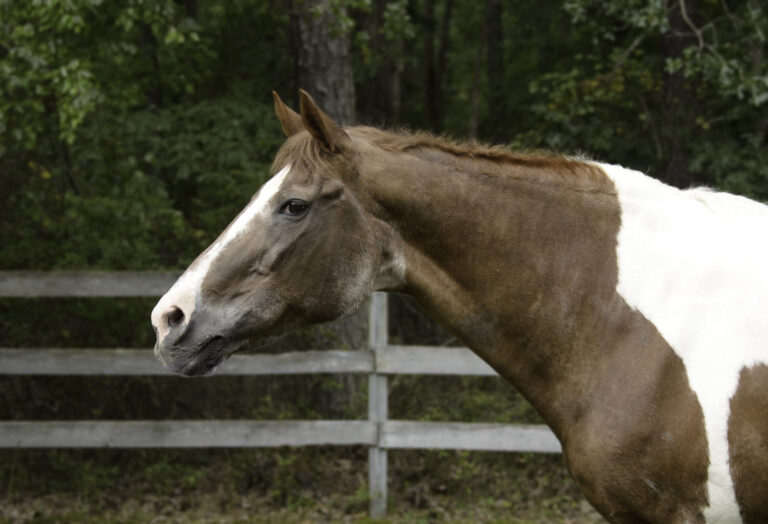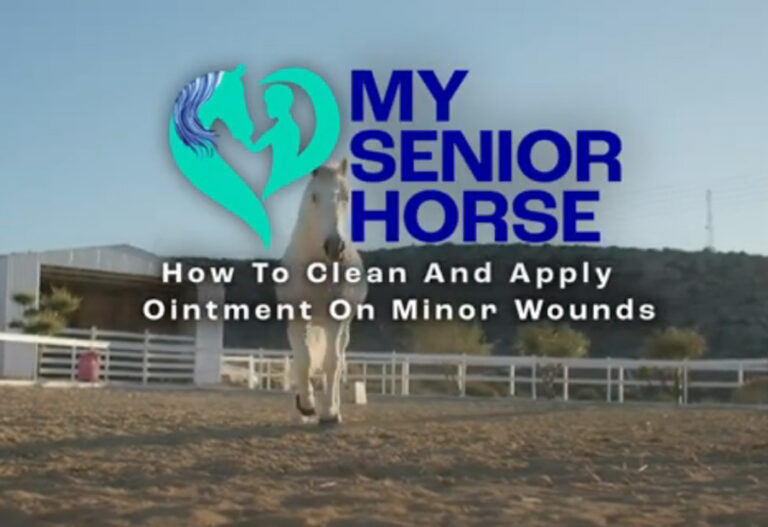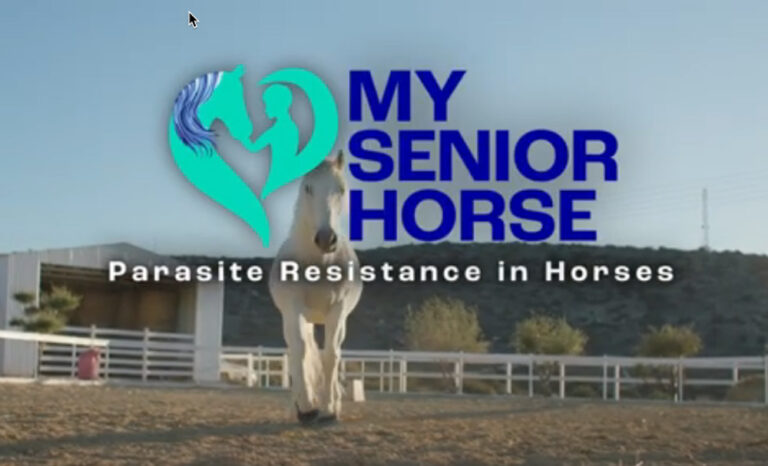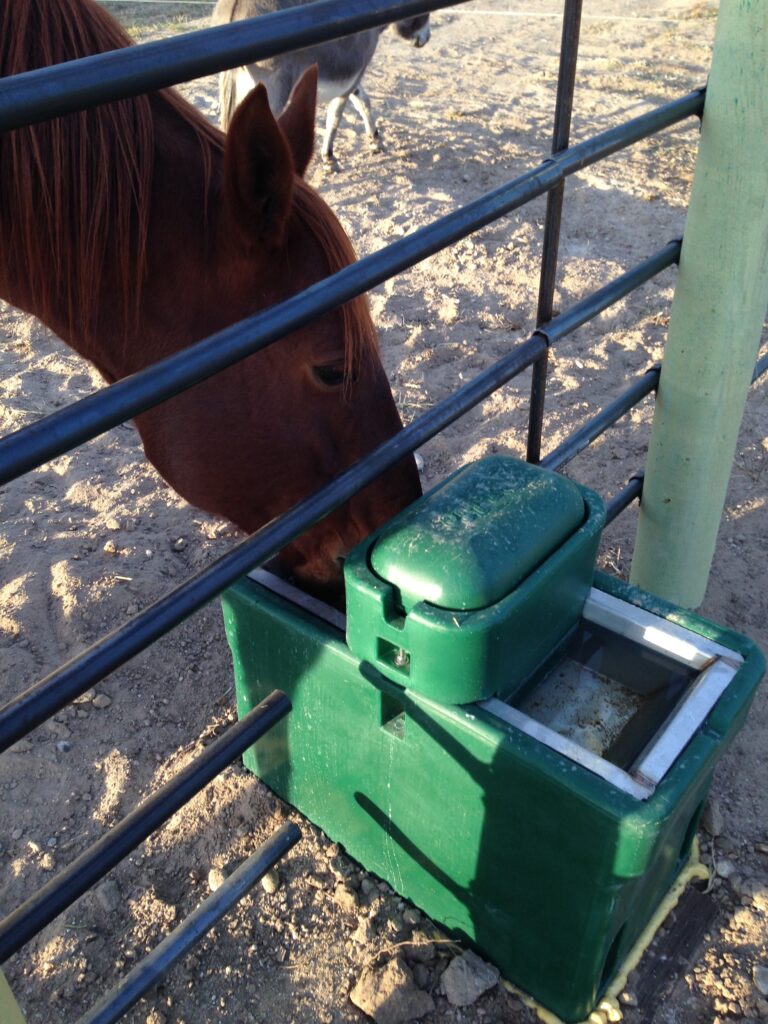Caring for a senior horse in winter might require a little planning ahead of time. That’s why we are giving you these tips ahead of time!
Whether winter in your area that means lots of snow or just a slight change in seasons, it’s time to prepare your older horses.
Here are four things to do before winter arrives that can make the seasonal changes easier on your senior equid.
1. Have Senior Horse Teeth Checked
A horse needs to be able to chew properly to benefit from all the nutrients its feed can supply. The ability to chew hay is particularly important for senior horses in winter because fiber provides a metabolic “slow burn,” which helps keep the animal warm.
If your older horse’s teeth haven’t been examined within the past six months, set an appointment with your veterinarian. You can make accommodations for dental issues even if they can’t be “fixed.” Soak feed to soften it or switch to chopped hay to assist senior horses with dental issues as winter approaches.
2. Address Arthritis
An aging horse with arthritis is likely to feel more “creaky” and sore as winter approaches and temperatures drop. Arthritis can make it difficult to access hay and water in a herd setting. It also can make it difficult to rise after lying down. Prior to winter might be a good time to start an arthritis treatment for your senior horse. Discuss options with your veterinarian.
Nonsteroidal anti-inflammatory drugs (NSAIDs) help a horse with more advanced arthritis be more comfortable. This is a decision your veterinarian can help you make. Speak to your veterinarian in fall if you think your horse might need more help with an intramuscular or intra-articular injection of an FDA-approved arthritis drug. Such injections can be more challenging to administer in extremely cold weather, so having them done sooner might be a better option.
3. Ensure Vaccinations Are Up to Date
Don’t assume that your older horse has maintained sufficient immunity to disease to be protected. Research suggests that the immune system needs extra support as a horse ages.
Horses typically live in closer quarters during the winter, which increases the risk of spreading influenza or other contagious/infectious illnesses. This risk is even greater if your older horse lives at a barn where other horses frequently come and go. Remember that diseases such as Eastern equine encephalitis and West Nile virus remain threats in milder climates where mosquitoes are active during the winter. Check with your veterinarian to make sure your horse is current on all relevant vaccines.
4. Check Turnout Area Footing
Even if the ground looks okay now, make sure that it won’t become treacherous when the weather is bad. Deep, slick, or extremely sloping footing might be too hard on some older horses, particularly when you add rain, ice, or snow.
Also make sure to provide proper shelter. It’s vital that senior horses have enough room to rest out of the wind and precipitation.
Adapted from an article by the editors of EQUUS
Further Reading
- Caring for Senior Horses in Winter. MySeniorHorse.com
- Winter Care for Senior Horses. MySeniorHorse.com

